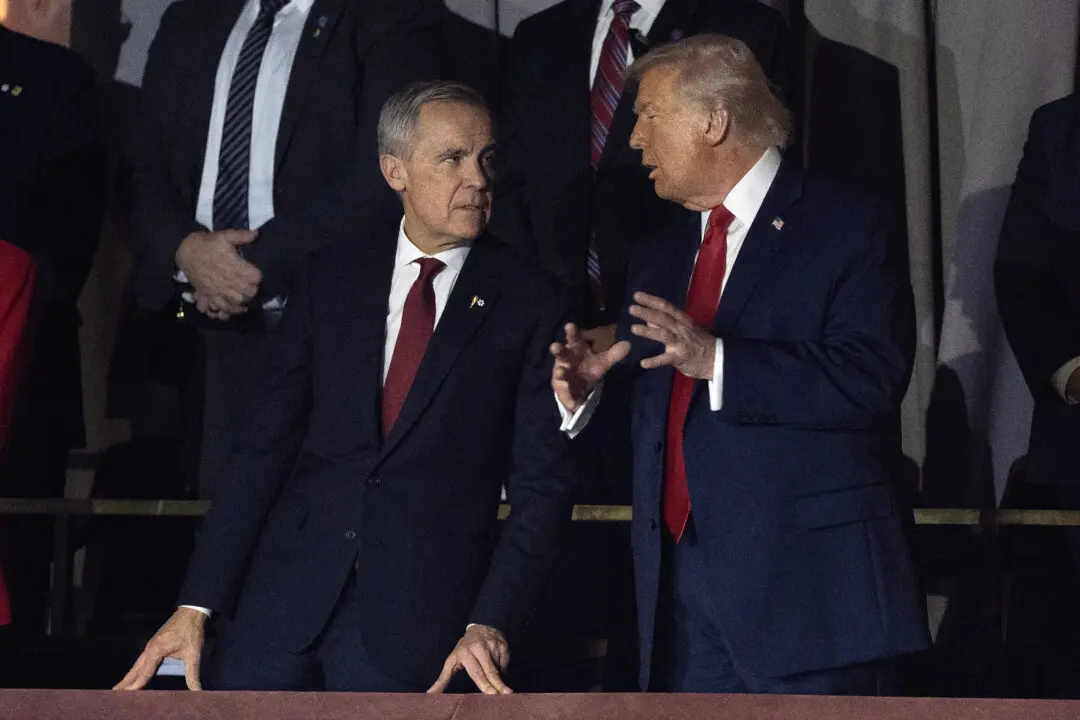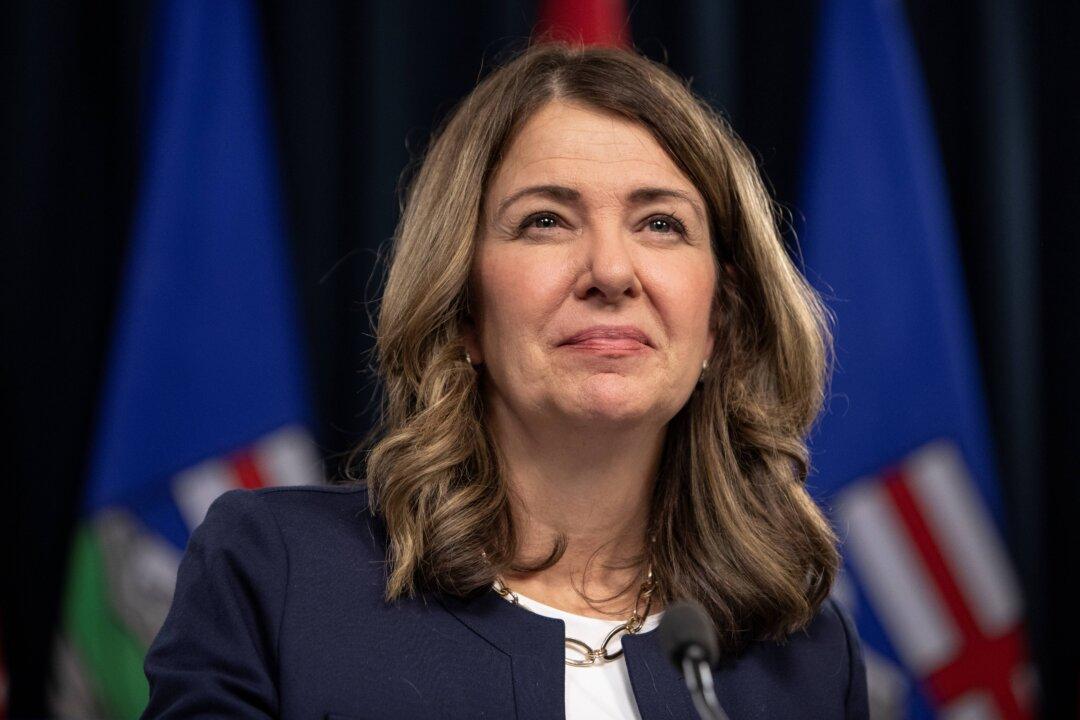OTTAWA—Saskatchewan Premier Scott Moe says he does not support the idea of Ottawa increasing reciprocal tariffs on the United States because it would negatively impact the export market in his province.
“We have been very apprehensive, even with respect to very targeted tariffs that are in place today,” Moe said during a fireside chat at the Strong and Free Conference in Ottawa on April 11.





